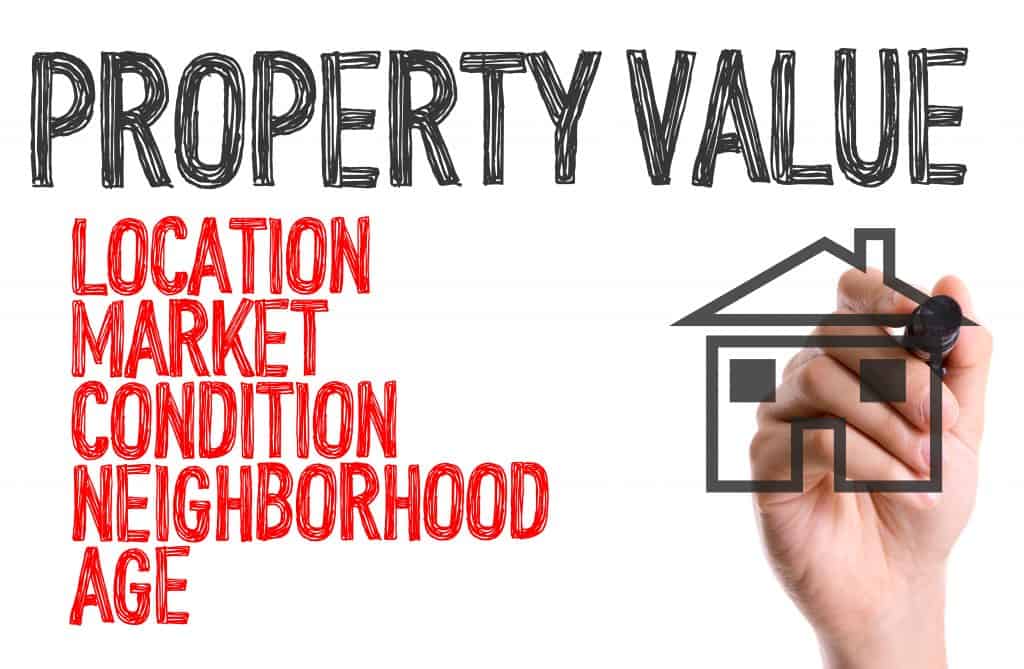Like all other commodities, property values rise and fall according to supply and demand. In an economy where most of the working-age people are employed, renters feel financially secure enough to buy their first home. Existing homeowners use their home equity to upgrade, so they put their home up for sale and buy a home that is closer to their dream home. Retired homeowners often downgrade, move to a retirement community, or move to an area closer to their grown children. And so it goes. This is an economy that produces the movement of home sales, and the increased home prices reflect the home buying cycle.
The economy is the major influence that gets the ball rolling. If the economy stays strong, people continue to buy, and home prices increase. When the economy lags, fewer people buy homes, and prices stagnate or decrease.
Beyond the economy, other factors make or break a property value. A homeowner’s association regulates compliance to certain standards of the homes within an area the organization oversees. You can control the condition of your own home. Unless you live in a neighborhood that has a homeowner’s association there is little you can do about the condition of a neighbor’s home.
As a potential home buyer begins their search for a home to buy, they have a certain image in their mind of the home they would like to live in. A general description of that home calls for the home to be in a pleasant neighborhood where the homebuyer and their family can live in peace and feel secure. Beyond that simple description lies their financial capability, the style, the size, number of bedrooms and bathrooms, and many other individual qualities and preferences they expect to get with their home purchase.
Any extraordinary noises, events, or activities likely to disrupt the peace and enjoyment of their new home will not attract most potential home buyers. The existence or the proposed addition of anything causing those conditions will keep home buyers away, and home values will stagnate or decrease.
Most homebuyers will choose a home that is move-in ready. This means there are no conditions that require immediate repair. A well-maintained home has a higher value than one that has not had that care.
Outdoor deferred maintenance conditions such as a deteriorating or damaged roof, moss on the roof, peeling paint, chipped siding, cracked chimney, broken gutters, water pooling or spilling showing drainage problems, cracked driveway or foundation, overgrown shrubbery, out-of-date or broken windows and doors, long grass, broken fencing, presence of junk cars or other items strewn about the yard decrease your home value. If those conditions exist at a close neighboring home, the value of your home may also decrease.
Any indoor deferred maintenance or conditions such as smoking or pet odor, messy and cluttered home, leaky pipes, electrical wiring or electric box problems, drainage problems, dirty or chipped paint, worn out carpets or window coverings, sagging or stained flooring, out-of-date or worn kitchen or bathroom flooring, fixtures, and appliances, signs of water damage, mold or mildew are certain to decrease interest in your home and bring a value down.
Multiple foreclosures in an area indicate a less than favorable neighborhood which causes buyers to be wary and may choose to avoid buying a home there.
Certain circumstances already have a negative impact on home values. Any change or addition of nearby commercial activities that may further disrupt a community with loud noises, air pollution, or extra traffic congestion will cause home values to decrease. This includes such things as industrial or major commercial businesses like new or proposed factories, warehouse complexes, fracking, gravel yard, wifi towers, airport, train tracks, race tracks, powerlines, gun range, billboards, certain types of smaller businesses considered immoral or dangerous, and zoning changes.
Evidence or reputation of any illegal activities such as drug use or drug dealing, property crimes, personal attacks and assaults such as mugging or attacks of any kind.
Presence of homeless encampments discourages home buying in an area. Sadly, much of this population brings with it criminal and drug use activities.
Change in traffic use or patterns such as one that brings increased traffic to an area, or the impending construction of a nearby noisy and busy freeway discourage buyers.
Registered sex offenders moving to an area are an immediate red flag that keeps buyers away.
A declining school district with past or present violence and poor educational outcomes will decrease the value of homes affected by that school district.
Areas where there has been flooding, erosion, or destructive environmental or weather events of any kind will decrease property values.
Any history that your home has been flooded, impacted by a fire or a crime committed at the property will decrease the home value.

